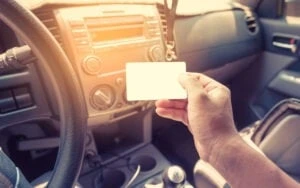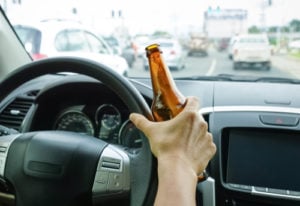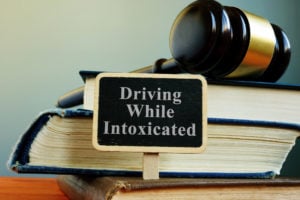
An arrest or conviction for DWI in Texas can complicate your life in more ways than you might imagine. In addition to the potential criminal penalties, fines, and added insurance costs, a DWI conviction in Texas could put your career at risk, especially if you hold a professional license. The boards and governing bodies that regulate licensed professionals in Texas are responsible for maintaining public trust in those professions.
As part of that effort, they expect licensees to uphold the highest possible standards, and they have their own disciplinary process for licensees convicted of DWI. It does not matter if the DWI happened during or outside work hours—the board could still sanction your license. If you are in this situation, consider consulting an attorney who can defend you against DWI charges.
How do DWI Charges Affect Professional Licenses?
Anyone arrested for DWI while holding a commercial driver’s license (CDL) or commercial driver’s license learner’s permit can have their license suspended or revoked by the Texas Department of Public Safety (TxDPS) through Administrative License Revocation (ALR) process. However, the list of professional licensees who can be sanctioned for DWI convictions extends well beyond CDL holders.
Texas has regulatory agencies or boards governing every licensed profession, and these agencies oversee the conduct of its licensees. They have the power to suspend or otherwise sanction licensees for conduct that is detrimental to the public trust, and criminal convictions can be grounds for discipline. Examples of professional licenses that can be sanctioned for DWI convictions include, but are not limited to:
- Real estate licenses
- Pharmacist licenses
- Medical licenses
- Teaching licenses
- Pilot licenses
- Veterinary licenses
- Law licenses
You Must Report Your DWI Conviction
Sometimes, the arresting police department will notify your licensing agency automatically after your DWI arrest. Even if they do not, most Texas state licensing agencies require you to alert them in a timely manner. Some licenses, such as medical or nursing licenses, require the holder to report a DWI arrest to the Texas Medical Board.
In fact, the mere failure to report the DWI violation could result in discipline up to and including license suspension. If you are applying for a new license, the agency will require you to report the conviction on your application. Again, failure to report the conviction may be grounds for denial of your application once they discover it on the background check.
If you do not report the DWI (usually within 30 days), there is a question on every license renewal application requiring you to disclose any convictions since your last license renewal. Failure to report the DWI is the same as filing a false application, which will incur even more severe discipline. In any case, the agency that issued your professional license will eventually find out about your DWI.
For a legal consultation, call 713-225-1900
What Happens After the Licensing Agency Finds Out?
Every Texas licensing agency has its own disciplinary process. The process usually begins with a notice that you are under investigation for violating the terms of your (license pursuant to the DWI charge) and summons you to a formal investigative hearing. In most cases, the terms of your license require you to attend this hearing and answer the board’s questions truthfully.
You may also have to submit any evidence (e.g., the arrest report, sentencing recommendation) related to your conviction on or before your hearing date. However, you do have the right to defend yourself and have legal counsel represent you at your hearing. If you do not attend the hearing and defend yourself, the board may sanction your license via default.
Do You Have to Report the Arrest or Just the Conviction?
In almost all cases, you must report DWI convictions to your licensing board. However, your profession may have different requirements for reporting DWI arrests. If, for example, you work in a field where you deal with the public in a capacity related to safety or health (e.g., bus driver, taxi driver, pilot, nurse, doctor), a DWI arrest alone may prompt an investigation, and you must report the arrest.
Since most licensing agencies view failure to report a conviction as an attempt to evade sanctions, you should review the rules governing your license if you have any doubt about whether you must report your arrest or conviction.
What Are the Potential Disciplinary Sanctions?
Each board has its own criteria when gauging the seriousness of a DWI conviction and how it impacts your ability to perform as a licensed professional. Factors it may consider during the disciplinary process include:
- The severity of your conviction (e.g., BAC, was anyone hurt, open container in the car)
- Whether it is your first conviction or a subsequent conviction
- The degree to which your conviction affects public trust in your profession
The potential sanctions for DWI convictions can include one or more of the following:
- Permanent revocation of your professional license
- Suspension of your professional license for a given period
- Placing your license on probationary status for a given period
- Issuing a public reprimand
Some professional licensing boards also have diversion and treatment programs for substance abuse that they will require you to attend in lieu of discipline. Whether you qualify for them depends on the rules governing your profession and the circumstances surrounding your arrest.
Disciplinary Sanctions Are a Matter of Public Record
You have the right to appeal disciplinary sanctions, but if you lose that appeal, the sanctions against you will become part of the public record along with your DWI conviction. That means any potential client can search the database for your licensed profession and find out that your license was sanctioned for a DWI conviction.
Depending on the field you work in, that may not be as big a deterrent to clients. For example, if you are an attorney, a DWI conviction reflects poorly on your personal judgment but not necessarily your legal ethics. However, if you are a bus driver, a disciplinary sanction will harm your future employment prospects.
On the other hand, if you are a bus driver, potential clients or employers may take a different view of your disciplinary mark for DWI. In either case, you must be honest with them and answer truthfully if they ask you directly about any sanctions or disciplinary action against your license.
Click to contact our Houston lawyer today
The Best Way to Avoid DWI Sanctions Is to Avoid Conviction
It is no secret that a DWI conviction in Texas can have a negative effect on your career if you hold a professional license. The best way to avoid having your professional license sanctioned for a DWI conviction is to not have a DWI conviction on your record. If you hold a professional license and you have been arrested for DWI, it is important to have a DWI attorney represent you.
Blass Law has been fighting for the rights of criminal defendants since 2009. Our lead attorney, Jay Blass Cohen, is not only passionate about criminal defense, but he also has a scientific background in forensics that helps him isolate weak points in DWI cases.
Contact our office today for a confidential consultation about how we can defend you in a DWI case and help you maintain your professional license in good standing.
Call or text 713-225-1900 or complete a Case Evaluation form





